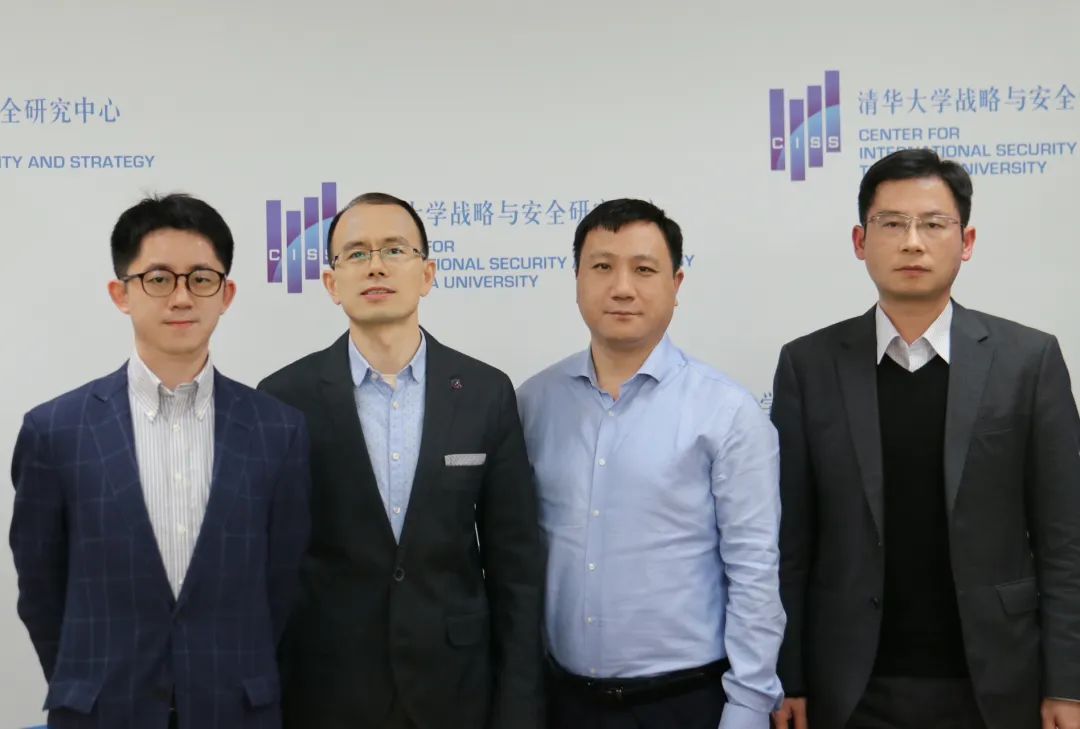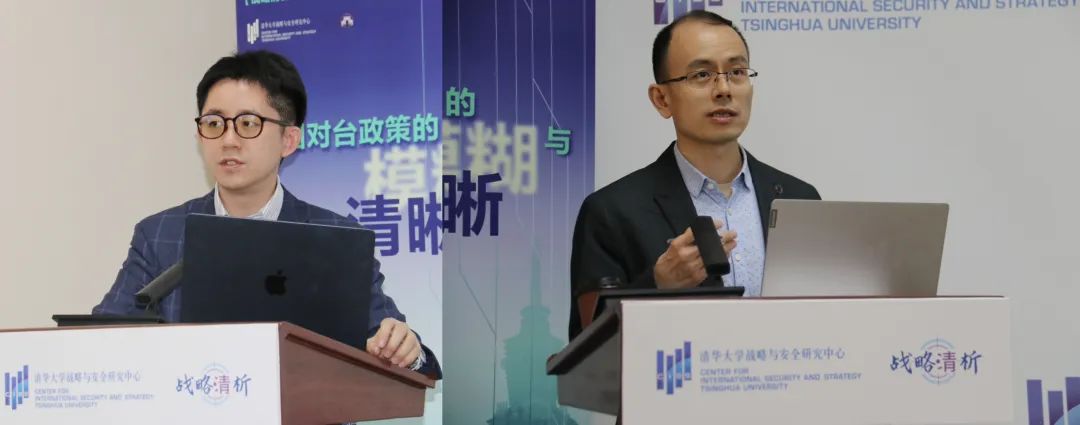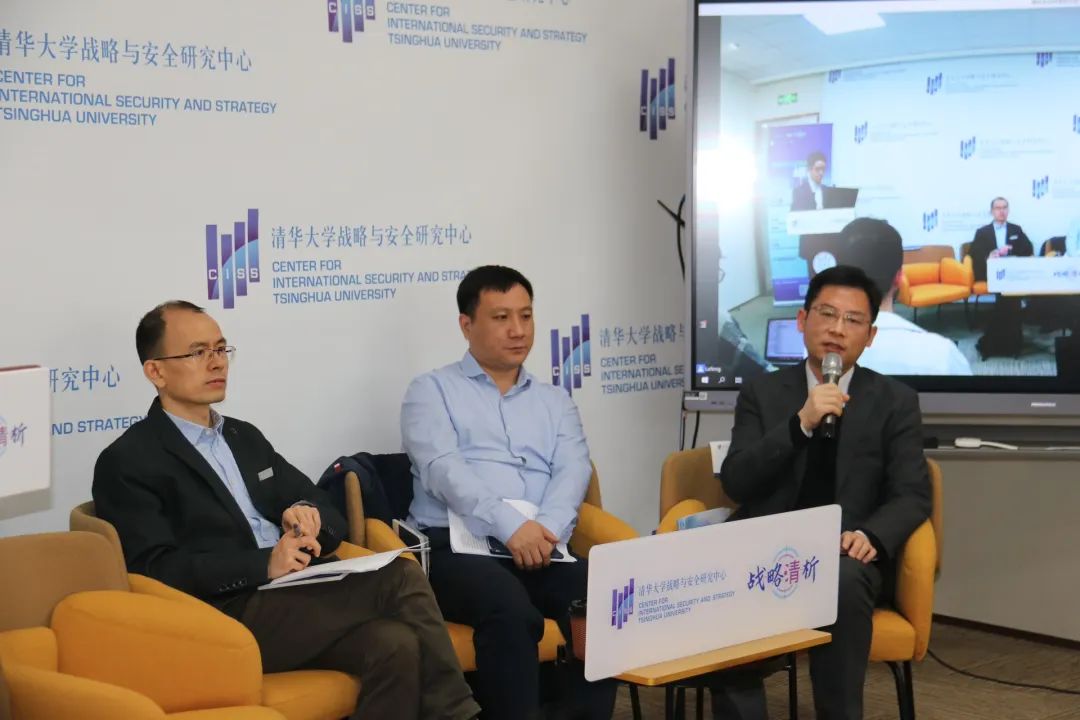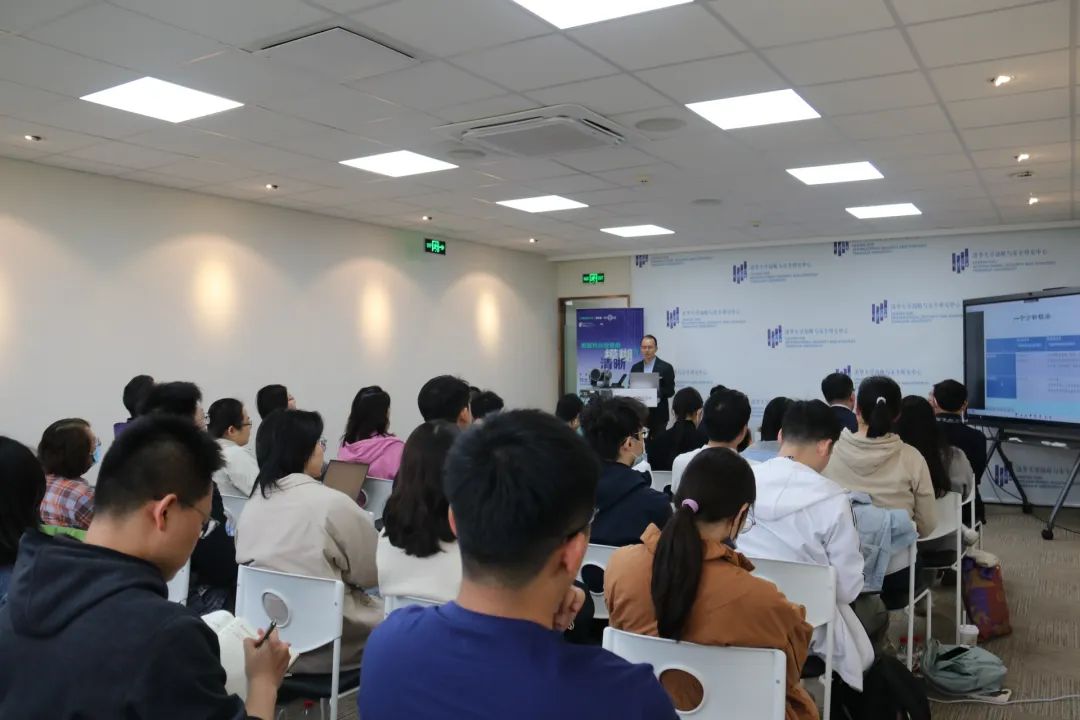On the afternoon of April 14, the 9th StratFocus Forum of the Center for International Security and Strategy (CISS) of Tsinghua University was held in Conference Room 428B, Mingli Building, Tsinghua University, with about 200 participants joining the forum online. Featuring Jie Dalei, Associate Professor of the School of International Studies at Peking University, as the key speaker, the forum themed “The Ambiguity and Clarity of the U.S. Policy toward Taiwan.” Also among the panelists were Zuo Xiying, Professor of the School of International Studies at Renmin University of China, and Wang Shushen, Director of the Foreign Relations Research Office of the Institute of Taiwan Studies Chinese Academy of Social Sciences. They discussed the evolution and current situation of the U.S. policy toward Taiwan. The forum was moderated by CISS Fellow Sun Chenghao.

Jie Dalei built a framework of analysis from the two aspects of politics and security and two policy dimensions of declarativeness and operationality, summarized the direction and extent of the current change in the U.S. “Strategic Ambiguity” policy, and analyzed direct and in-depth reasons for these changes.
In the following, Zuo Xiying and Wang Shushen shared their views as panelists. Zuo Xiying explored the shift toward “Clarity” of the U.S. policy toward Taiwan. He pointed out that the “Strategic Ambiguity”, as a historical legacy of the process of establishing diplomatic relations between China and the U.S., was the product of a specific historical stage. At present, the conditions for the U.S. to continue with “Strategic Ambiguity” are waning. The strength of the two sides of the Taiwan Strait has been unbalanced and the U.S. continues to hollow out the “One China” principle. Besides, the Ukraine crisis has prompted a shift in the current U.S. policy toward Taiwan.

Wang Shushen said that the ambiguity and clarity of the U.S. policy toward Taiwan were a relative concept. Currently, the “Clarity” is more prevailing, thus China should be vigilant about how operational the “Strategic Ambiguity” could be. The “Strategic Ambiguity” of the U.S. is somewhat like a double deterrence. The U.S. recently proposed a new defense strategy centered on “Integrated Deterrence” which means to consolidate the deterrence system against China through rejection, resilience, and cost.

At last, the key speaker and panelists answered questions from the online and offline audiences.

The StratFocus Forum is launched by the Center for International Security and Strategy of Tsinghua University, with the objective of fostering more talents and building an academic community on security and strategy. The forum, which is held monthly, aims to serve as an academic exchange platform for students and young scholars in the fields of strategy, security, international relations, and diplomacy, where they will be invited to discuss pressing global issues and cutting-edge research in their disciplines, and promote communication and interaction between young scholars and students. We very much look forward to seeing you at the forum.
